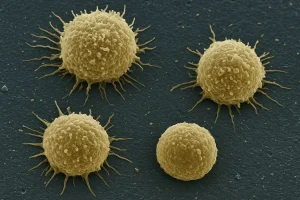A comprehensive metabolic profile (CMP) is a routine blood test that provides a broad overview of your body’s chemical balance and metabolism. It’s commonly used to assess organ function, especially the liver and kidneys, and to detect metabolic disorders.
What Is a Comprehensive Metabolic Profile?
A CMP measures levels of 14 substances in your blood. These markers help evaluate how well your body processes energy, maintains fluid balance, and filters waste. Doctors often order this test during annual checkups or before surgery to catch hidden issues early.
What 14 Tests Are in a CMP?
The CMP includes:
- Glucose – blood sugar level
- Calcium – bone and nerve function
- Albumin – liver and kidney health
- Total protein – nutritional status
- Sodium, potassium, CO₂, chloride – electrolyte balance
- Blood urea nitrogen (BUN) – kidney function
- Creatinine – waste filtration
- Alkaline phosphatase (ALP) – liver and bone health
- Alanine aminotransferase (ALT) – liver enzyme
- Aspartate aminotransferase (AST) – liver enzyme
- Bilirubin – liver and red blood cell breakdown
These tests together give a snapshot of your metabolic health.
Is Comprehensive Metabolic Profile Fasting?
Yes, fasting is typically required for 8–12 hours before a CMP. This ensures accurate glucose and electrolyte readings. Drinking water is allowed, but avoid food, coffee, and supplements unless instructed otherwise.
What Cancers Does CMP Detect?
CMP is not a cancer screening test. However, it can reveal abnormalities that may prompt further investigation. For example:
- Elevated liver enzymes (ALT, AST) may suggest liver damage, which could be linked to liver cancer
- Abnormal calcium levels might indicate parathyroid tumors or bone metastases
- Low albumin or total protein can reflect chronic illness, including cancer-related malnutrition
Still, CMP alone cannot confirm or rule out cancer. It’s a supportive diagnostic tool, not a definitive test.
Why Is CMP Useful?
- Early detection of organ dysfunction
- Monitoring chronic conditions like diabetes or kidney disease
- Evaluating medication effects on liver or kidneys
- Pre-surgical screening to ensure safe anesthesia
- Tracking recovery after illness or treatment
FAQ – Common Questions About CMP
1. Can I take medications before the test? Some medications may affect results. Always ask your doctor beforehand.
2. How long does it take to get results? Usually within 24–48 hours, depending on the lab.
3. Is CMP painful or risky? It’s a standard blood draw — quick, safe, and minimally invasive.
4. Can CMP detect diabetes? It includes glucose measurement, which may indicate diabetes risk, but further testing is needed for diagnosis.
5. Should I repeat CMP regularly? If you have chronic conditions or take medications affecting metabolism, regular monitoring is recommended.
This article reflects the personal views of the author and is not medical advice. Always consult a qualified healthcare provider for diagnosis, interpretation, and treatment.
Sources:
- Mayo Clinic
- Labcorp
- MedlinePlus















